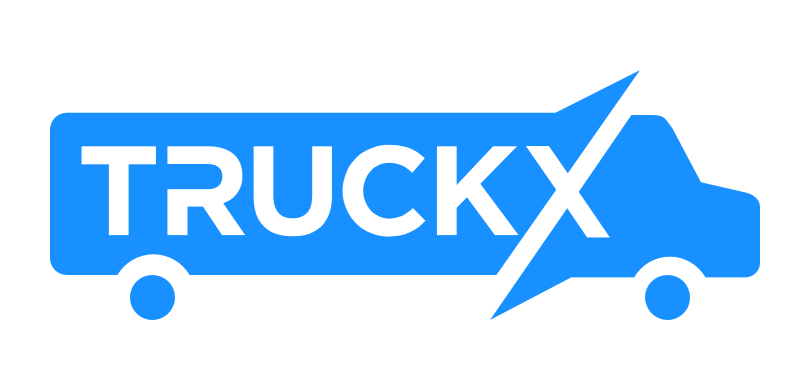- Tapan Chaudhari
- May 2, 2022
- 4:39 am
3 Technologies That Can Help Large Fleets Be More Efficient, Safe, And Profitable

Technology is continuously progressing and developing new features, which allows it to be endlessly helpful to us in light of the problems we’re facing. Let’s consider three of the most powerful technologies that every large fleet could benefit from. Leveraging these technology options can help your trucking business be more efficient, safe, and profitable. The three most relevant technologies for trucking are cloud, IoT, and big data. These technologies help reduce costs and improve operational efficiencies across industries and are now making an impact in the world of trucking too.
1. IoT (Internet of Technologies)
The world of trucking is changing. Even today, more companies are learning to use IoT devices to monitor their fleets and drivers are preparing for these new technologies to make their job easier, safer, and more efficient.
But what exactly is IoT? The short answer is that it’s a collection of technologies that allow data and objects to communicate with each other.
For fleet managers and business owners, a lot of time, money, and resources often keep track of their trucks on the road. However, if even one part of the process goes wrong, it can have severe consequences for the company’s bottom line. The most crucial part of any fleet is safety, and IoT devices have become an important part of fleet management. These devices track everything from driver behavior to vehicle performance so managers can find ways to improve both efficiency and safety.
More and more commercial fleets are turning to innovative new technologies like the Internet of Things (IoT)To help deliver goods on time, reduce administrative costs, and ensure driver safety and satisfaction. IoT allows drivers to stay connected, get directions in real-time, and keep track of the cargo they’re responsible for. As we move into the future, we will see more IoT devices used by large fleets.
2.Cloud
Fleet management can be made easier by leveraging today’s advanced technologies — especially cloud-enabled solutions.
Cloud is the technology that makes possible many of the other trends transforming the way trucking companies operate. That’s because it enables companies to access ready infrastructure when required, connect to new solutions from anywhere when needed, and collect store, and analyze data from multiple sources in real-time.
An array of solutions depends on cloud technology. Solutions like dashcams, asset tracking systems, and sensor networks keeping an eye on cargo and vehicles can improve operational efficiency and driver safety. By connecting to the cloud, they provide access to real-time data from anywhere. Fleet managers and drivers can act immediately on issues before they become major problems. With the help of the cloud, trucking companies can identify bottlenecks, ensure drivers stay on schedule, and avoid unnecessary downtime. For example, they can predict when drivers will reach their hours-of-service limit and plan accordingly.
For large fleets, cloud technology allows data to be stored in remote servers accessible via the internet by centralized IT departments. This enables real-time communication between the office and the field through any device connected to the internet like laptops, smartphones, and tablets.
Cloud technology also reduces the amount of hardware needed at each location because there is no need to store all your company’s information on site. You don’t need a server room or computer dedicated to running applications. You can simply log in to your account from any device with a browser, which saves money on hardware upgrades and maintenance, and office space.

3.Data Analytics
You’ve probably heard the term “big data” used in many contexts. It’s become a buzzword and one that is thrown around a lot in transportation circles.
But what does it mean to you and your company? Simply put, it means analyzing large amounts of data about your fleet and its operations to drive better decisions to get more efficient and profitable.
The most versatile technology in the fight for efficiency is data analytics. Fleets can analyze their past performance with various metrics and identify areas where they could become more efficient. For example, data like driver behavior, vehicle performance, and maintenance history can all compare how different drivers or vehicles perform over time. If you see that one vehicle consistently uses more fuel than another or has more problems with tires wearing out prematurely, you can make adjustments to improve performance fleetwide.
When most people think of big data, they think of data analytics — taking lots of information and making decisions. This can range from something as simple as using GPS data to determine the most efficient routes for your trucks to analyzing drivers’ habits or diagnostics from trucks to see if anything needs fixing before it breaks down on the road.
In the transportation world, big data can help companies find better drivers and make them happier with their job by providing personalized coaching that addresses their specific needs for improvement. It can also save money by avoiding accidents and ensuring drivers take the best routes possible to get from point A to point B. It could even help optimize routes for safety concerns or traffic jams based on historical driving patterns of other drivers in the area at that time of day.

Takeaway: The Trucking Industry Is Experiencing a Revolution And You Can’t Be A Spectator
The future of trucking may be digital, but that doesn’t mean it lacks sentiment. Instead, it’s all about giving the trucker what they want (and need). Improved safety, increased efficiency, and reduced cost are just some of the desirable outcomes of using technology to innovate the industry. So, if you’re wondering what the future might hold for the trucking industry–don’t worry. There’s a lot to look forward to.
